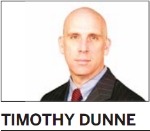Opinion
Traveling the road to an economy of consumption
By Tim Dunne (China Daily)
Updated: 2010-08-02 11:21
 |
Large Medium Small |
Government rolled out vast incentive programs as exports fell up to $1.2 trillion last year
 |
China has been among the world's largest recipients of FDI during this period, and it is the world's largest exporter of goods and services, with exports peaking at $1.4 trillion in 2008, accounting for nearly one-third of China's total GDP that year.
While FDI continued to flow into China in 2009, its export performance was hard hit as Chinese exports declined by nearly $250 billion to $1.2 trillion due to economic malaise in China's primary export destinations Europe and the United States.
The Chinese government developed several remedies including a massive $586 billion government spending package to develop national infrastructure along with increased commercial and consumer lending from State-owned banks, reported to have reached a record $1.4 trillion in 2009.
In the automotive sector, stimulus measures included reduced sales tax on some models and scrappage programs for others.
The result was soaring vehicle sales that increased by 50 percent in 2009, allowing China to unseat the United States as the world's largest auto market.
But economic stimulus is meant to be a temporary measure. Governments making money easily available over a long period can produce unpleasant fiscal results.
At some point, for a healthy and sustainable economy to emerge, consumers need to spend money they have earned rather than money that has been gifted to them by favorable policies.
This brings us back to China's public policy decision taken a decade ago.
Golden Week
In early 2000, the Chinese government announced that observance of the traditional May 1 Labor Day holiday would be extended to an entire week, or a so-called "Golden Week". Across the country, office workers and factory workers were encouraged to take a weeklong holiday to travel and rest.
The result of the extended holiday was a boom in domestic consumption. With more time on their hands, and savings in their bank accounts, Chinese consumers spent money at an unprecedented level.
The holiday provided some much needed rest for workers, but it also provided a crucial boost to retail sales.
Now we come to 2010. The economy has continued to do well - for example, auto sales are again up 50 percent in the first six months of the year - as generous stimulus and bank lending practices have continued to drive the economy to the point that inflation has become a concern.
To combat inflation, the government has taken measures to cool the economy, the most important of which are restrictions on bank lending. Growth slowed to a more manageable 10.3 percent in the second quarter a level it is expected to maintain for the rest of the year.




